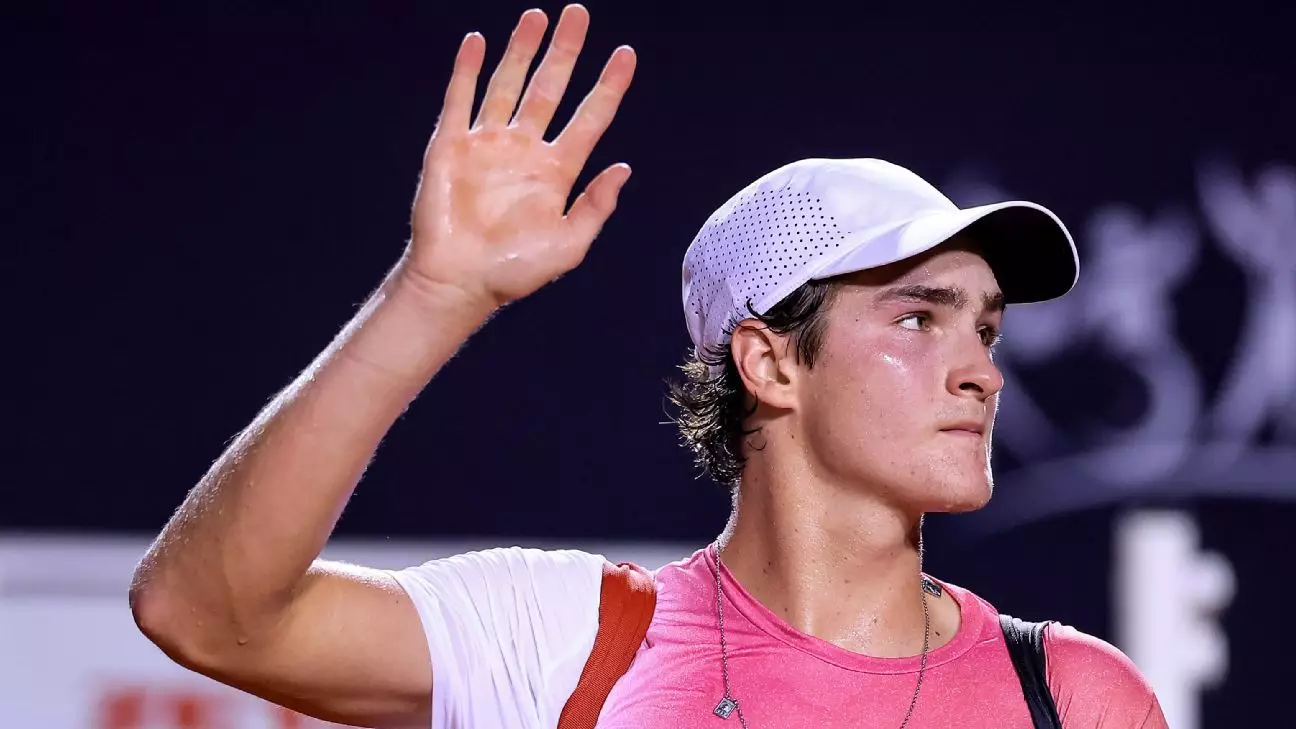The Rio Open, a prestigious event in the ATP calendar, was filled with anticipation as Brazilian tennis prodigy João Fonseca prepared to make his mark in front of a home crowd. Just two days earlier, Fonseca had basked in the glory of winning his first ATP title at the Argentina Open, positioning him as a rising star in tennis. However, the excitement quickly fizzled out when he faced Alexandre Muller, the French player ranked No. 60, and suffered a disappointing first-round defeat. The scoreline of 6-1, 7-6 (4) has left fans and pundits debating the impact of sudden fame on young athletes.
Following a monumental achievement, the weight of expectations often becomes unbearable. Fonseca’s remarkable victory in Argentina made him a historic figure, as he was the first male player born in 2006 or later to win a top-level ATP singles title. However, just days after that scintillating success, reality struck hard. In his match against Muller, Fonseca’s 34 unforced errors starkly highlighted the pressure he faced. His fatigue was palpable, diminishing his ability to compete effectively and raising concerns about his stamina and mental fortitude during pivotal matches.
Muller reflected on the atmosphere, noting the challenge of playing in front of approximately 5,000 spectators rooting for Fonseca. The Frenchman expressed a sense of relief and satisfaction in overcoming such a formidable opponent in a charged environment. The struggle of transitioning from the celebratory heights of victory to the somber reality of defeat shows that the path to success is fraught with challenges, particularly for young talents thrust into the spotlight.
It’s crucial to dissect the factors that contributed to Fonseca’s loss and what this means for his career going forward. While it is common for young athletes to experience fluctuations in performance, the ability to bounce back is key to long-term success. Fonseca’s overwhelming errors suggest that further refinement of his game is necessary, especially in managing high-pressure situations. The experience at the Rio Open could serve as a defining moment, teaching him resilience in the face of adversity.
Moreover, his meteoric rise to No. 68 in the ATP rankings might create a psychological burden as he navigates future competitions. The expectations will only escalate, and the need for strategic support, both on and off the court, becomes paramount. Athletes at this juncture must develop mechanisms for coping with pressure, ensuring they can thrive rather than just survive against established players.
Ultimately, Fonseca’s journey is just beginning. While losing in the Rio Open stings, it can be a catalyst for growth. The lessons learned in competitive matches like these are invaluable as he moves forward. As tennis enthusiasts and analysts watch closely, Fonseca’s potential remains unblemished; it just needs the right conditions to flourish. His ongoing narrative promises excitement and intrigue as he continues to shape his career in a sport that often is as unforgiving as it is rewarding.

